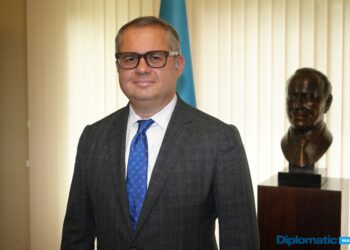In an exclusive interview with Diplomatic Watch Magazine, Wade Kusack, Founder and President of Love Your Neighbor Community (LYNC), shared his perspectives virtually from Tashkent, Uzbekistan. Wade discussed his ongoing mission to promote religious freedom across Eastern Europe and Central Asia, focusing on practical community engagement and multi-faith dialogue. Fluent in Russian and English, Wade discussed about LYNC’s collaborations with governments, civil society, and religious communities to enhance religious literacy and social cohesion in the region. His current efforts in Uzbekistan center on integrating human rights declarations into local practices, demonstrating LYNC’s commitment to driving meaningful change across diverse cultural landscapes.
Can you tell us about your current mission in Uzbekistan and what you aim to achieve?
I came with a short visit of just 4 days, primarily to present our next step in our cooperation with Uzbekistan, which is a second dialogue of Declarations. In 2022, we held our first event called “Dialogue of Declarations”, where we engaged authors of existing Human Rights Declarations from the Muslim World, such as the Marrakesh Declaration and Makkah Declaration, based on Medina Charter, among many others. Muslim scholars researched Islamic Theology in terms of reflecting Human Rights.
It was very important not only theoretically but in connection with the dialogue of the Declaration in 2022 and even now on a much larger scale we connect practical events. So, there are a lot of Declarations in this world. Human Rights Declarations. Declarations that describe good things that need to be done, but the Dialogue of Declarations here in Uzbekistan actually provides practical opportunities for Uzbek citizens to learn more and get trained in how to implement the Declarations’ provisions into the life of people.
So, we are planning to have cross-cultural religious literacy certificate course, for government, law enforcement, and religious leaders. Multi-faith relationship-building retreats, religion and the rule of law, certificate course. Consultations with the Uzbek government on topics of criminal justice reforms, and many other practical elements which basically come from our January trip recommendations. That’s what makes the Dialogue of Declarations unique.
It’s not only a theoretical discussion which is important and scholars are happy to participate in such discussions, but it also touches an everyday life of Uzbekistan’s citizens, strengthening religious freedom and addressing social cohesion.

What inspired you to found Love Your Neighbor Community (LYNC), and how has your personal background influenced your work?
The name speaks for itself: Love Your Neighbor Community. Actually, we were struggling with the idea of how to develop a strategy to advance religious freedom that can bring sustainable results. Me and my friends, the group of people currently in the Love Your Neighbor Community, were researching different options. For this purpose, in 2015 we traveled to a big conference that united many religious leaders from Central Asia. The main topic was how we can strengthen religious freedom here, with the idea of creating relationships first: multi-faith relationships, education, and so forth. We decided that advancing religious freedom through relationship building and showing the love of God in a practical and tangible way would be our motto from now on.
How do you see the landscape of religious freedom evolving in Eastern Europe and Central Asia, particularly in Uzbekistan?
Well, it’s very complex. When we are assessing religious freedom in Central Asia, we have to keep in mind many aspects that influence religious situations here in Uzbekistan and in Central Asia in general. It’s historical context. We are supposed to understand that all the Central Asian countries are very young, having been formed after the collapse of the Soviet Union, just 33 years ago. These countries did not exist for decades because they were under the Russian Empire and then the Soviet Union. We have to keep in mind that especially under the Soviet Union, the religious structure was completely destroyed. Now, the country is rebuilding itself, including rebuilding religious structures and relationships that were completely wiped out by the Soviet regime. This has greatly influenced what is going on in religious life here.
The second aspect would be the geopolitical situation. Uzbekistan, in particular, is a double landlock country with very complicated neighbors: Russia to the north, China to the east, Iran, and Afghanistan sharing direct borders to the south. We need to keep that in mind and include it in our understanding of religious affairs and religious life here. Such a neighborhood, such a geopolitical situation, obviously affects religious life and raises security concerns. Recent terrorist attacks in Russia, such as in Moscow, and in Dagestan just last week have created a very sensitive environment. They are trying to find an answer to what to do in this situation with ongoing extremism threats. That’s definitely something to consider, of course, in connection with international standards for religious freedom and all the best practices in the world.
What role does the “Religion, Security and Citizenship” project play in your efforts, and what are some notable outcomes from this initiative?
Well, we believe that religious freedom can be strengthened from the bottom up and trigger a response from the top down. When religious communities are divided and at odds with each other, it obviously jeopardizes all religious situations. So, returning to religious freedom, what is religious freedom and how do we measure it? This question is crucial, especially when discussing its advancement. To advance something, we need to measure it. For instance, in the last year, it was such and such because we measured it. The next year, it is such and such because we measure that. How is religious freedom measured? So far, the most popular instrument is created by the Pew Research Center. They measure government restrictions towards religions and social hostilities between and toward religions.
Our work primarily aims to decrease social hostility between religions and towards religion. When different religious communities communicate in friendships and collaborate for the common good, it strengthens civil society and provides opportunities for reforms. Furthermore, when responsible citizens educated on cross-cultural religious literacy and appreciate pluralistic virtues, religious freedom increases, at least in reducing social hostility. Yes, we work with the government. We provide opportunities for the government to create a strategy on how to advance religious freedom, not only by prohibiting and restricting everything when they experience security threats, but hopefully by understanding and creating a long-term strategy for its advancement.


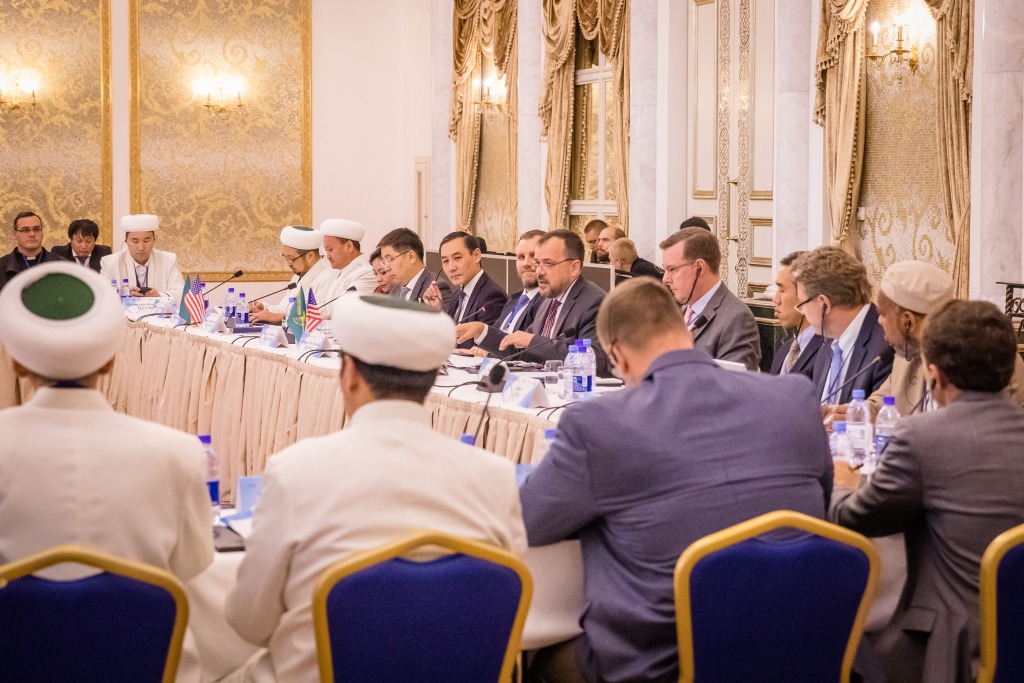
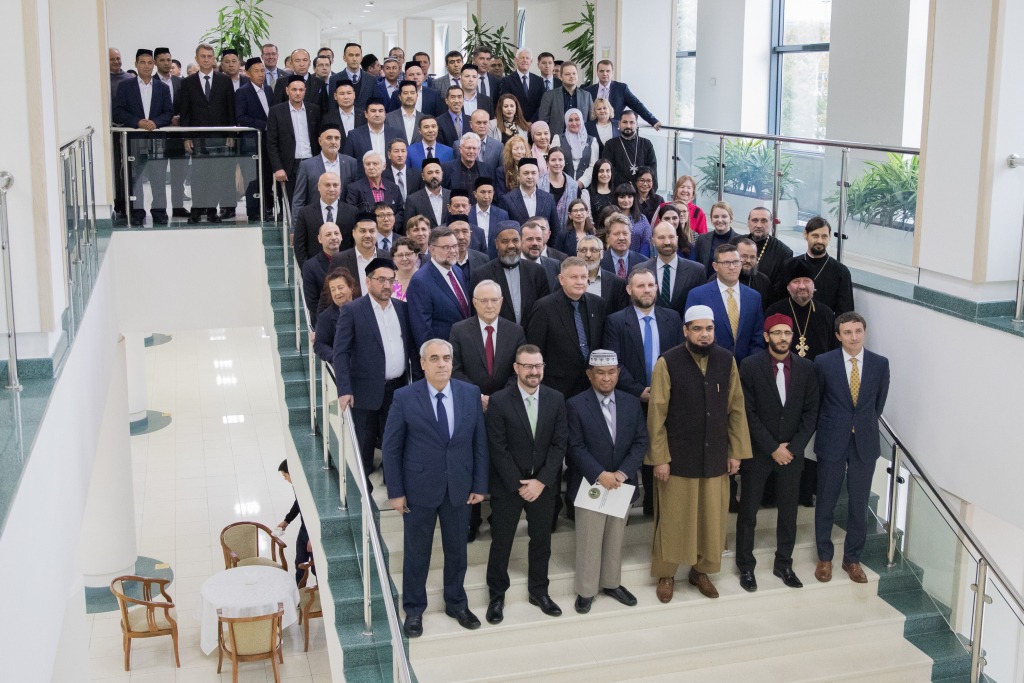
Can you provide an example of a successful community-building initiative that LYNC has implemented in Central Asia?
One of the most vivid examples is relationship building retreat in partnership with a Multi-Faith Neighbors Network. We have already conducted five retreats in Central Asia, specifically in Uzbekistan and Kazakhstan. These retreats are based on multi-faith principles, aiming not to reconcile different theologies, but to foster relationships despite theological differences. During one event here in Uzbekistan, I remember it was an occasion that brought together clergies from the same city who had never met or spoken before. A retreat provided that opportunity.
I recall one imam standing up and saying, ‘Oh, it’s the first time in my life I see a Baptist laughing. I thought they were very mean people, but they are not.’ He was genuinely surprised, and it illustrated the impact of these relationship-building efforts: stereotypes are shattered, and individuals connect on a basic human level, fostering a better understanding of each other. This creates a more conducive environment to discuss reforms for religious freedom.
How do you balance the promotion of religious freedom with the need for security and stability in the regions you operate?
Well, actually, religious freedom brings stability and security. In many cases, there’s a misunderstanding that the expansion of religious freedom jeopardizes security. No, it’s absolutely the opposite. Religious freedom is supposed to come with responsible citizenship. That’s the key idea. Religious freedom without responsible citizenship can lead to chaos, as we have witnessed in Central Asia in the 1990s. After the collapse of the Soviet Union, complete freedom often came without the accompanying responsibilities. Extremist organizations took advantage of this situation, initiating movements that engaged people in terrorist activities. Throughout Central Asia, we saw such developments in the 1990s.
Therefore, religious freedom is meant to be accompanied by responsible citizenship. When these two go hand in hand, they create a society that is more resilient to radicalization and more comfortable for citizens to practice their religions without fear of repression. When citizens are happy, satisfied, and their rights are not just granted but also protected by the government, they become appreciative and proactive in defending their freedoms. This has been proven in history, including in the United States. For example, studying the founding of the Massachusetts colony and Rhode Island by Roger Williams clearly illustrates the value of religious freedom. It’s not just a moral good; it’s also in the self-interest of societies. Religious freedom enhances security and creates a better environment for all citizens in a country
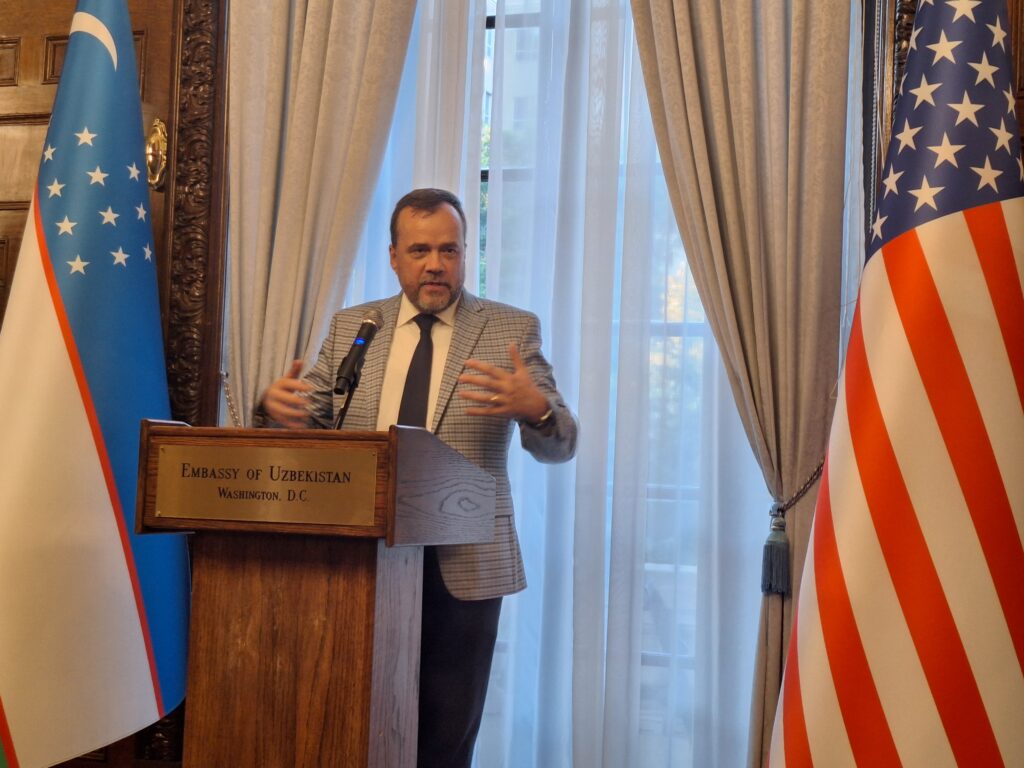


Do you operate solely in Central Asia and Europe, or do you extend your work to other regions as well?
We primarily focus on Central Asia; however, we have already started to engage Georgia. We also work in Ukraine, though our focus has shifted primarily to assisting Ukrainian refugees. We are trying to cover the entire former Soviet Union in terms of promoting religious freedom and developing opportunities for it.



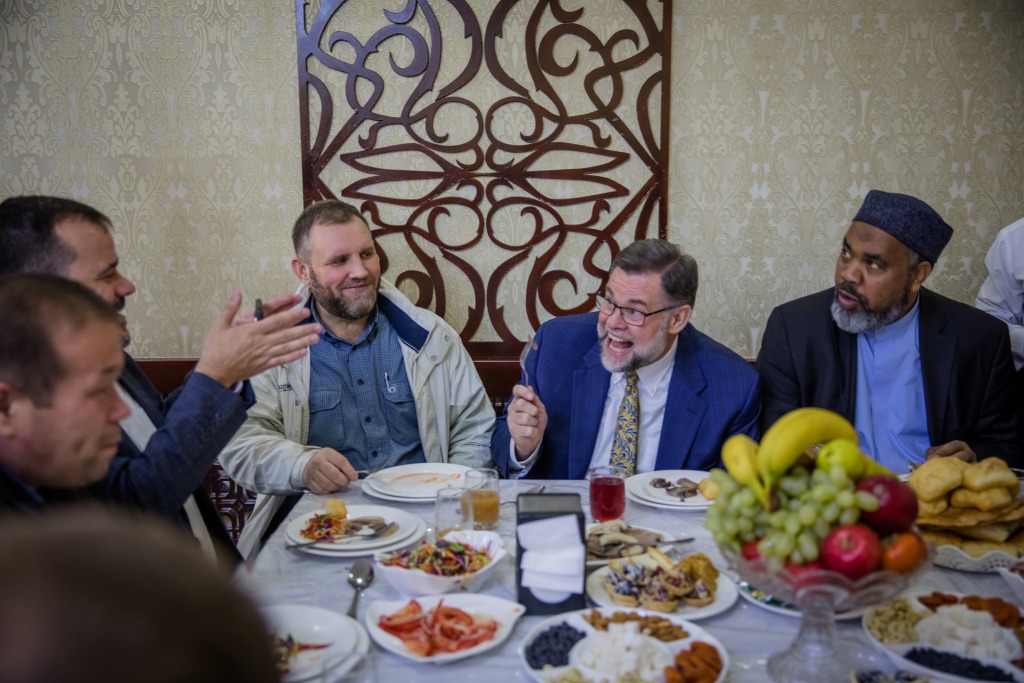
How feasible is it for you to pursue your activities? How secure do you feel, especially in regions or countries where religious restrictions are stringent?
Well, we have a lot of friends here in Central Asia, in Uzbekistan in particular. We create very good relationships with governments, many religious communities—different religious communities, Muslims, Christians, Jewish, and other faith-based groups. We work with those who understand and value what we do, who see great benefits in pluralistic virtues.
There are many good people on the same page here in Central Asia, both in the government and in the religious communities. The country is pretty safe, open for tourism, different kinds of delegations, including faith-based, business opportunities due to recent reforms. Uzbekistan’s economy is growing very fast.
I can compare Tashkent where I am currently and where I was in 2018; there is a huge difference. There are many businesses open—restaurants, hotels, entertainment centers, shopping centers—and Uzbekistan’s economy is growing at 5.5 percent per year, if I am not mistaken. This growth is significant, visible in the changes every half year I am here, with positive changes, growth, and more tourists coming.
The beautiful cities of Samarkand, the ancient city of Bukhara, Tashkent, and other fascinating places attract tourists. Uzbekistan is a very hospitable country, safe, and offers unique opportunities to learn from its history and current development. It’s a very interesting country to visit.




